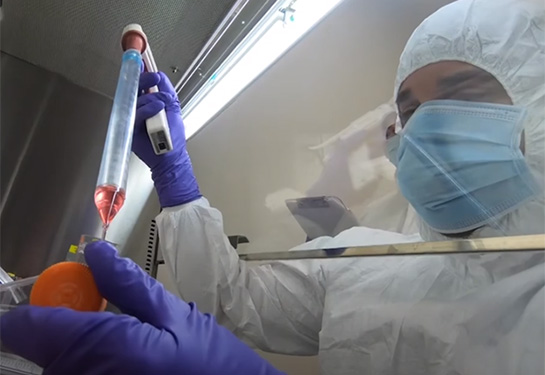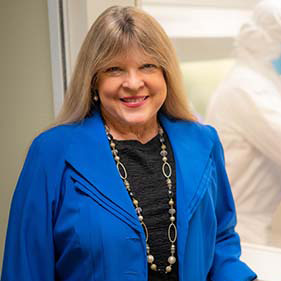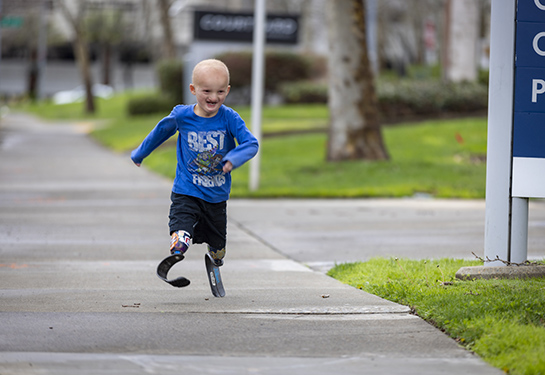UC Davis and Orgenesis partner to boost access to gene and cell therapies in California
UC Davis and Orgenesis Inc. announced today an agreement to roll out Orgenesis Mobile Processing Units and Labs™ (OMPULs™) at multiple medical and academic institutions within the University of California. These OMPULs provide onsite development and manufacturing of cell and gene therapies, help reduce development costs, and increase access to therapies.
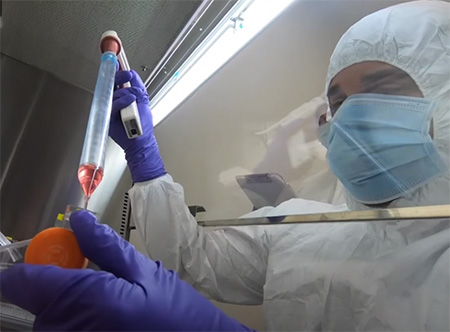
“We are very excited to move forward with this collaboration with Orgenesis,” said Jan Nolta, director of the Stem Cell Program and the UC Davis Gene Therapy Center in the Institute for Regenerative Cures at UC Davis Health. “The OMPULs will allow wider access to promising cell and gene therapies for patients in different regions of California, improving accessibility and reducing health care disparities.”
The collaboration is the initial step in bringing affordable therapies to patients in California. It sets out a staged approach to install and operate OMPULs using the point-of-care (POCare) Service Platform to produce onsite cell and gene therapies for clinical trials and therapeutics for hospitals.
UC Davis Health joined the Orgenesis POCare Network in 2020. It has been utilizing the platform to develop and supply cell and gene products and therapies.
Access to cell and gene therapy through onsite manufacturing
Over the last three decades, the field of cell and gene therapies has transformed, with expanding applications each year. One example is Chimeric antigen receptor T (CAR T) cell therapies. These evolved from the experimental phase in 2012, with therapies available only at a few specialized academic centers, to FDA-approved, commercialized therapies now available to more patients.
CAR T cells are applied as first-line therapies to cure hematologic malignancies (blood cancer disorders). They give thousands of patients hope that their immune systems could be trained to successfully combat their lymphomas or leukemias for the rest of their lives.
“CAR T cell therapies are currently the best-known cell and gene therapies,” said Gerhard Bauer, director of the Good Manufacturing Practice facility at UC Davis. “What is still lacking, however, are CAR T cell therapies that are widely available and affordable, so all patients, no matter where they are located, could receive such curative treatments.”
UC Davis has been working with Orgenesis on a paradigm shift to address these accessibility issues. Instead of only a few large manufacturing centers, mobile cell and gene therapy manufacturing units will be able to supply CAR T cell products to patients at locations that are remote from major universities or medical centers.
The OMPULs will allow wider access to promising cell and gene therapies for patients in different regions of California, improving accessibility and reducing healthcare disparities.” —Jan Nolta, director of the Stem Cell Program and Gene Therapy Center in the Institute for Regenerative Cures
The new partnership includes establishing and validating the first OMPUL at UC Davis. This step would be followed by the commercialization and installation of OMPULs at other health care sites in California.
“We believe that this partnership between Orgenesis, UC Davis and the University of California will become a blueprint for decentralizing the development and manufacturing of cell and gene therapies while demonstrating the benefits of our OMPUL design for the U.S. and international health care markets,” said Vered Caplan, CEO of Orgenesis. “Our shared goal is the widespread development of life-saving therapies for patients with a range of conditions, at a cost that can be supported by payers and the wider society as a whole.”
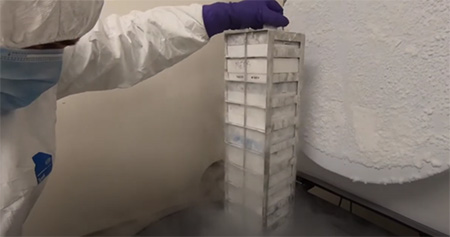
Morgenesis LLC., Orgenesis’ POCare service subsidiary, will install the OMPULs.
“Quality products for the treatment of blood malignancies will be more available. The manufacturing will be carried out by highly trained personnel and overseen by a centralized and sophisticated quality control unit, just as in the large manufacturing centers,” Bauer said. “With OMPULs, cell preservation and shipping of products can be avoided, and product manufacturing time can be reduced. This leads to cost savings, making therapies more affordable and available to more patients.”
The new agreement with Orgenesis follows an $8 million grant renewal for UC Davis Health’s Alpha Stem Cell Clinic from the California Institute for Regenerative Medicine (CIRM). The grant enables the clinic to expand its clinical trials operation and advance toward onsite manufacturing of therapies.
About UC Davis Stem Cell Program
UC Davis’ Stem Cell Program brings together physicians, research scientists, biomedical engineers and a range of experts and partners at its Institute for Regenerative Cures. The $62 million facility located on the university’s Sacramento campus was supported by the California Institute for Regenerative Medicine (CIRM). It is the hub for collaborative, team-oriented science that is advancing breakthrough discoveries designed to bring stem cell therapies and cures to patients everywhere. Learn more about the CIRM-funded Alpha Clinic at UC Davis Health.
About the Gene Therapy Center
The UC Davis Gene Therapy Center provides a uniquely comprehensive and established interdisciplinary network of experts and resources to lead the field of gene therapy through research, manufacturing, training and policy. It offers expertise and state-of-the-art facilities and equipment, including one of the largest university-based Good Manufacturing Practice (GMP) facilities and a Viral Vector Core. Learn more about the Gene Therapy Center.
About Orgenesis
Orgenesis is a global biotech company working to unlock the full potential of cell and gene therapies (CGTs) in an affordable and accessible format at the point of care. The POCare Network brings together patients, doctors, industry partners, research institutes and hospitals worldwide to achieve harmonized, regulated clinical development and production of the therapies. Learn more about Orgenesis.
Related stories:

